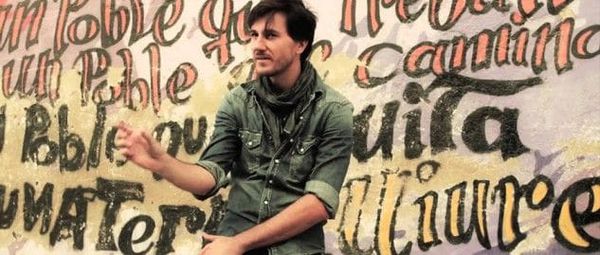Eye For Film >> Movies >> Baratometrajes 2.0 (2014) Film Review
Baratometrajes 2.0
Reviewed by: Rebecca Naughten

Caught in a perfect storm of far-from-perfect circumstances - the economic crisis, a sharp rise (from 8% to 21% in one go) in the VAT on cinema tickets, cinemas closing as they struggle to deal with the costs of switching to digital, and an incumbent government that is actively hostile towards the arts - Spanish cinema has struggled to stay afloat in the past few years as its broader industrial foundations have become increasingly unstable and unreliable. Adversity often inspires creativity - out of necessity if nothing else - and Baratometrajes 2.0 (literal translation 'cheap films') investigates not only how the social, political, and economic situation in Spain is impacting on cinema production, but also what has developed in reaction to those factors.
The precarious and complex nature of Spanish film finance presents an obstacle course for potential filmmakers - the documentary offers a clear and concise explanation of the complicated subsidy system - and many have turned to crowdfunding, including the makers of this documentary. But while that is a current trend, many of the participants argue that it is not something that can be sustainable in the long-term and future finance remains up in the air.

However, a technological revolution has simultaneously democratised the means of production - making a film has become cheaper than ever before, provided that you have a story to tell and the talent (and helpful friends) to make the most of the resources on offer. Baratometrajes 2.0 concentrates on low-budget productions but also highlights that the broader idea of 'independent cinema' is expanding exponentially in Spain - although as producer / director Tina Olivares asks early on in the film, "independent from what?" given that Spanish film budgets are fairly low across the board and dropping further each year (a medium budget production used to be around 2.5m€, but in recent years has fallen closer to 1.5m€).
But making the film is only half the problem. If routes into filmmaking have diversified and become more accessible, the same is not yet true of distribution and exhibition - actually getting your film into cinemas, and attracting an audience when you have few promotional resources, remains an uphill struggle. Established distributors and exhibitors are unwilling to take risks on smaller, less-obviously 'commercial' productions given the economic circumstances in which they're operating.
One of the strengths of Baratometrajes 2.0 is the diverse range of voices and perspectives encompassed - filmmakers, producers, festival programmers, distributors, exhibitors - meaning that they build a multi-faceted picture of the struggles faced, but also emphasise possible solutions from a variety of sources. In particular they look at how the internet is increasingly being used, not only in distribution in the form of VOD, but also as a way for smaller productions to promote themselves and build an audience ahead of release - the creative campaign surrounding The World Is Ours (Alfonso Sánchez, 2012), which challenged and defied perceptions of what a low-budget film could achieve in terms of audience numbers, is discussed in some detail and offers a much-needed positive example of what is achievable with imagination.
Baratometrajes 2.0 zips along - and packs in a lot - in this 52 minute version (it exists in longer incarnations as well), offering a concise and informative overview of low-budget filmmaking in Spain today. In terms of the current state of Spanish cinema - or as an exploration of how culture and its creators will find a way to survive even in dire economic times - there is plenty here to get you thinking (and to pique your interest in the productions on display within the film).
Reviewed on: 27 Sep 2014














